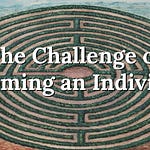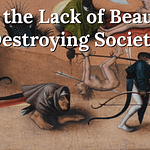“He did not know that the new life would not be given him for nothing, that he would have to pay dearly for it and that it would cost him great striving, great suffering.”
Fyodor Dostoevsky, Crime and Punishment
Many people blame the hardships of their life for their inability to live up to their potential. Poverty, poor health, bad parents, anxiety, depression, a lack of good role models, or of natural talent, the excuses that people use to justify their failures are endless. But adversity is a double-edged sword; it can destroy a man, but it can also lift him to great heights. In this video we explore the life of the Russian novelist Fyodor Dostoevsky and reveal how immense hardships sculpted him into one of history’s most astute psychological observers and one of the greatest authors of all time. We also show how crucial to Dostoevsky’s ability to utilize hardships in the direction of positive self-transformation was the possession of a life’s purpose.
Dostoevsky was born in Moscow in 1821. From the time he learned to read he was captivated by literature. In his youth, he recited by memory, lengthy sections of novels to entertain his family. He read obsessively and began writing stories at a young age. By his teenage years, Dostoevsky knew that literature was his passion and that he wanted to become a writer.
“What already distinguishes Dostoyevsky [in his youth] from his fellows is the depths of his involvement with literature;” writes his biographer Joseph Frank “it is clear that he was living emotionally in a world quite different from most of his comrades, whose heads were filled with quite other and more immediately practical concerns.”
Joseph Frank, Dostoevsky: The Seeds of Revolt, 1821-1849
In 1838, at the age of 16, under the pressure of his father, Dostoevsky enrolled in the Military Engineering Academy in St. Petersburg. Dostoevsky knew this was a mistake. He had no interest in becoming an engineer, all he wanted to do was read and write. Later in life reflecting on this decision he stated:
“We were taken, my brother and I, to Petersburg and to the Academy of engineers, and thus our future was spoiled. In my opinion, it was an error.”
Cited in Leonid Grossman, Dostoevsky
Entry into the Military Academy marked the beginning of a nearly twenty-year period of immense hardships that would test Dostoevsky to his limits. His desire to become a writer, however, saved him from circumstances that would have easily destroyed most others.










